Our latest titles
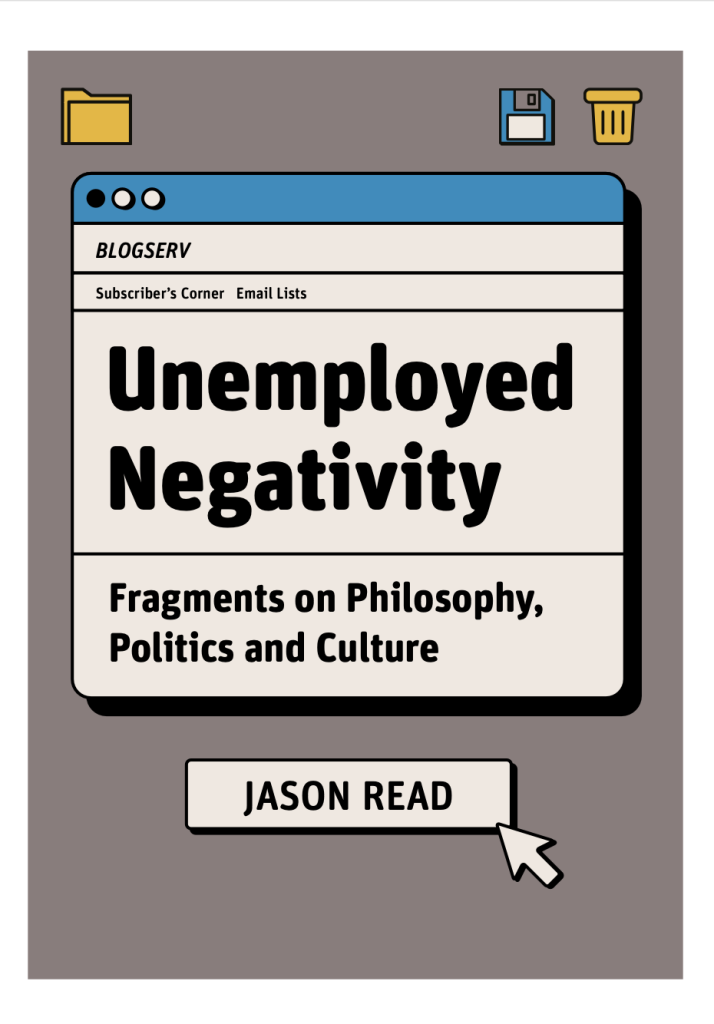
Unemployed Negativity: Fragments on Philosophy, Politics, and Culture
Jason Read
Unemployed Negativity is a blog kept by Jason Read for over eighteen years. During that time, it has been a reflection on everything from the films of Jordan Peele to the relevance of Marxist criticism for contemporary society. It has reflected on such cultural transformations as the lasting legacy of Shark Week to the rise of conspiracy theories in contemporary politics. In doing so it has persisted in one central aim, to make philosophy a living reflection on the present rather than a contemplation of the past. This is a collection of its best posts, revised and expanded for publication.
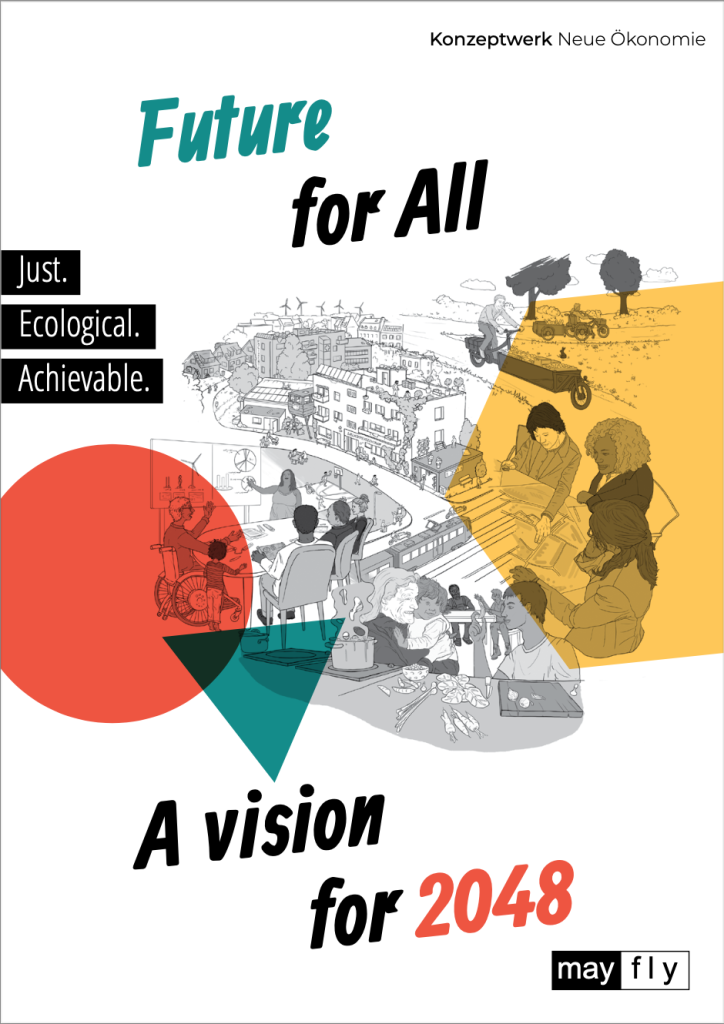
Future for All: A vision for 2048
Kai Kuhnhenn, Anne Pinnow, Matthias Schmelzer, and Nina Treu
Imagine it’s the year 2048. How do you get around? What do you eat? How do you spend your time? How and what do you work? And beyond your own situation: What could this future look like? How is the economy organized? How can it be just, ecological and achievable – for everyone?
This book shows possible answers to these questions. In view of diverse crises – climate catastrophe, increasing inequality, economic crises – more and more people are embarking on the search for a completely different economic and social system. But what can this look like? Based on the results of twelve future workshops with almost 200 pioneering thinkers, Future for all presents a vision for the year 2048.
The Vision 2048 creates images of a desirable future beyond capitalism that is viable and achievable, that stimulates critical debate, and that inspires courage and hope.
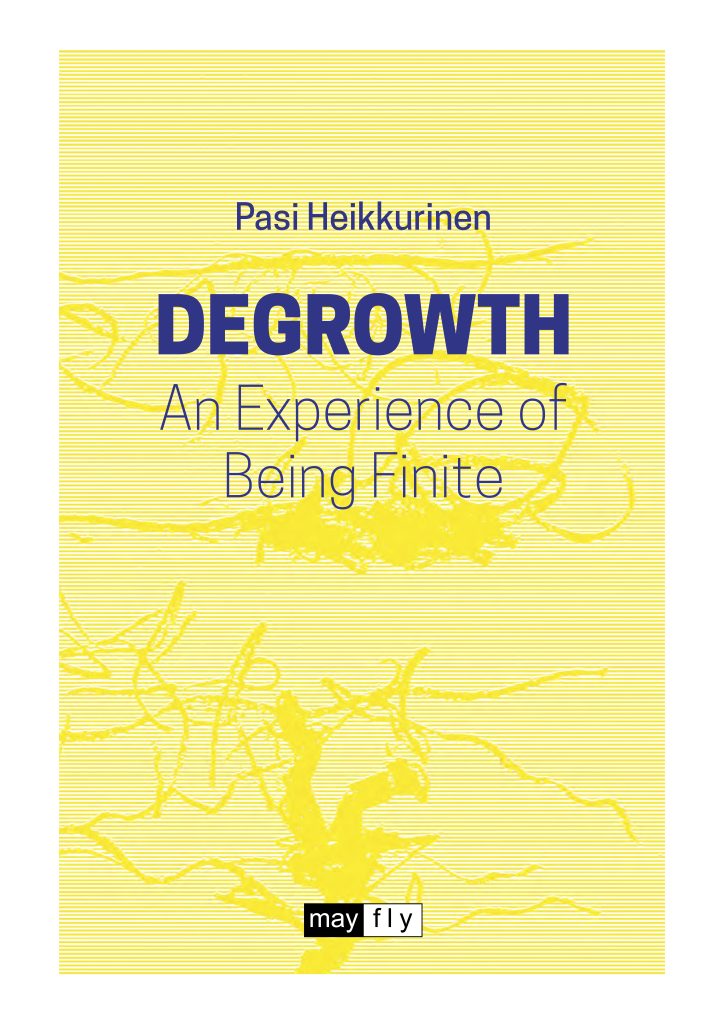
Degrowth: An Experience of Being Finite
Pasi Heikkurinen
Degrowth is an experience. It is about fathoming that being-in-nature is finite. Experiencing finitude offers the long-awaited theoretical foundation for the degrowth movement.
In this book, Pasi Heikkurinen argues that we must understand limits ‘from within’ in order to effectively reduce matter-energy throughput. He coins the metabolic cutback as the minimalist definition of degrowth. He also provides a lucid critique of how technology, transformations, and nature are perceived in cultures of growth.
To overcome the shortfalls of our perception, experiential notions of releasement, metamorphosis, and the core of nature are propounded. Heikkurinen calls for a collective experience of degrowing in practice while avoiding overinclusive rhetoric.
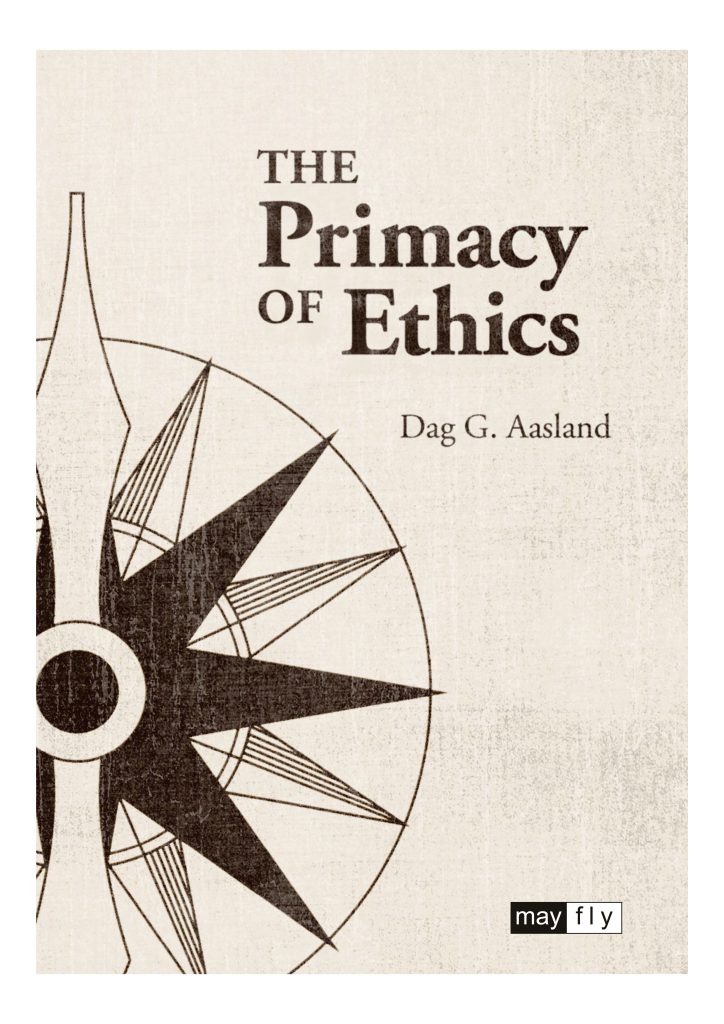
The Primacy of Ethics
Dag G. Aasland
New insights into the early development of the brain and the emergence of consciousness challenge many of our preconceptions about the connection between body and mind. This book explores the implications of this knowledge, revealing how a fundamental ethic is inherently embodied in each of us before any words are formed.
The examination of the primacy of ethics in this book reveals that ethics precedes not only all words but also establishes the necessary foundation for the thinking subject. As thinking and acting humans, we exist within an interpersonal context, and basic ethics emerge through interactions with others. The book illustrates how narratives bind us together, correcting and supplementing a rational language that, when used unilaterally, can create distance and even work against its intended purpose.
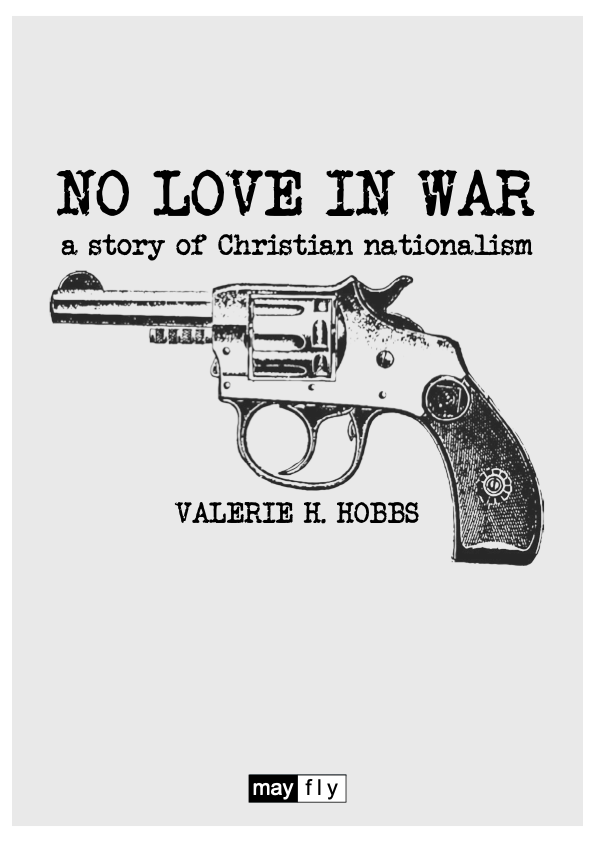
AUDIOBOOK: No Love in War: a story of Christian Nationalism
Valerie H. Hobbs
We are excited to announce that the Open-Access audiobook version of No Love in War by Valerie Hobbs – is being released in weekly episodes of each chapter. Click on the cover or the link above to listen to the trailer and more.
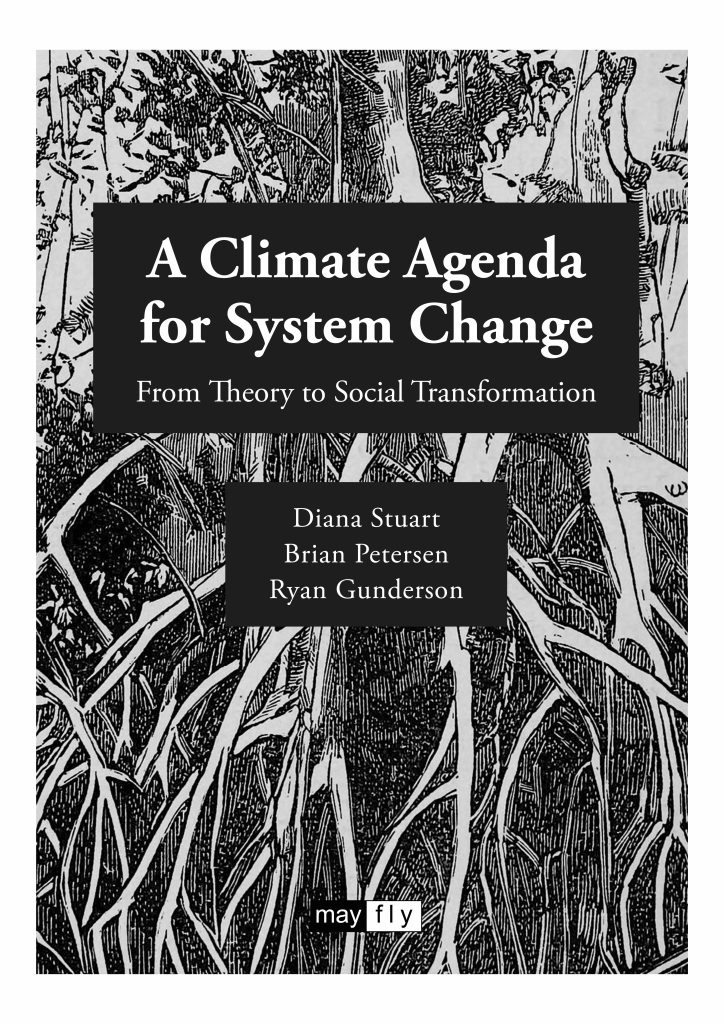
A Climate Agenda for System Change: From Theory to Social Transformation
Diana Stuart, Brian Petersen, and Ryan Gunderson
While calls for “system change” to address the climate crisis have become more common, it is important to identify what system change should entail and why. This book examines what a climate agenda for system change might include and why these policies and programs are critical to minimize global warming and enhance social wellbeing. While our current trajectory involves maintaining the status quo and relying on future technologies to mitigate climate change, a system-changing agenda has the potential to more rapidly, effectively, and justly minimize warming. Drawing from ecosocialism and degrowth, the authors identify key agenda items and why they should be prioritized. The book then focuses on how system change might take place, identifying obstacles and challenges, and motivations for persevering despite opposition.

No Love in War: a story of Christian Nationalism
Valerie H. Hobbs
This book is an auto-ethnographic account of the everyday realities of life without love, among those who pursue war. It documents the ways that Dominionist theologies (the recovery of a theocratic state, with Christians in key positions of influence in all institutions) manifest in interpersonal relationships, resulting in manipulative, often violent misogyny, racism and homophobia. It follows the disordered and erratic trajectory of a woman’s life – the author’s life – moving through three concentric circles of influence in the Dominionist movement, from extremist middle to outer, softer rim, focusing in particular on the New Apostolic Reformation, Christian Reconstructionism and Neo-Calvinism in the United States.
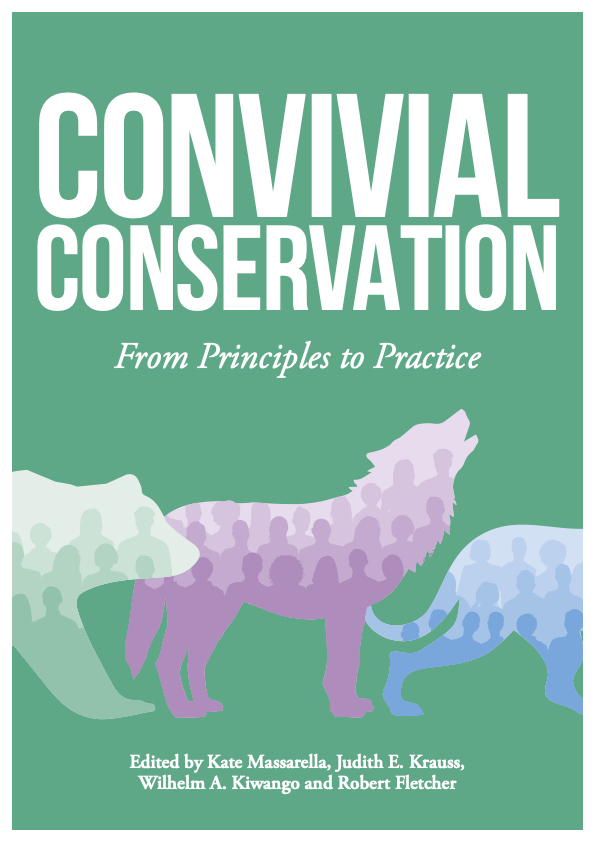
Convivial Conservation: From Principles to Practice
Kate Massarella et al (eds.)
Drawing on a rich mix of perspectives and case studies centering on human-wildlife interactions, the authors demonstrate the potential for transformation in biodiversity conservation that supports human-wildlife coexistence.
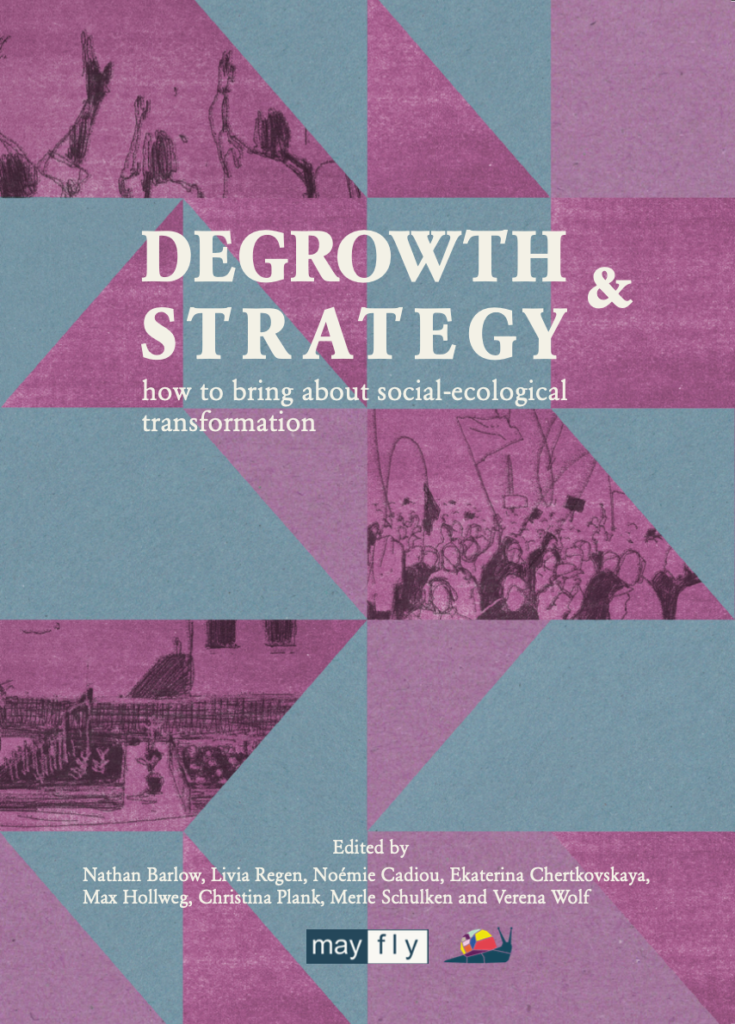
Degrowth & Strategy: how to bring about social-ecological transformation
Nathan Barlow et al (eds.)
Degrowth is a counter-hegemonic movement that has the ambitious aim of transforming society towards social and ecological justice. But how do we get there? That is the question this book addresses. Adhering to the multiplicity of degrowth whilst also arguing that strategic prioritisation and coordination are key, Degrowth & Strategy advances the debate on strategy for social-ecological transformation. It explores what strategising means, identifies key directions for the degrowth movement, and scrutinises strategies in practice that aim to realise a degrowth society. Bringing together voices from degrowth and related movements, this book creates a polyphony for change going beyond the sum of its parts.
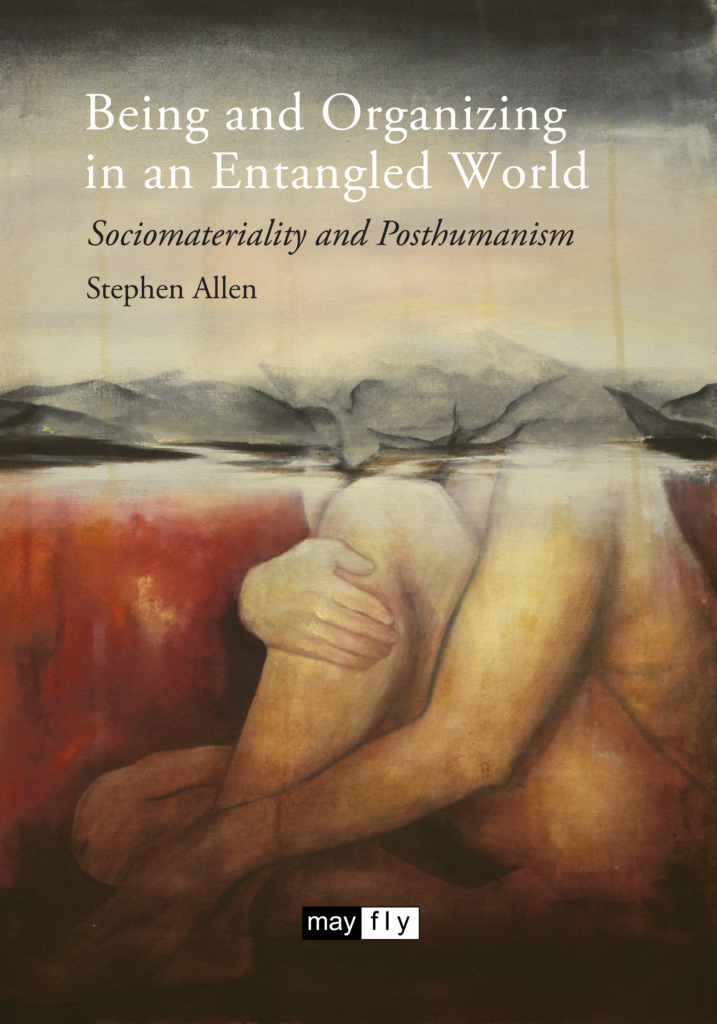
Being and Organizing in an Entangled World: Sociomateriality and Posthumanism
Stephen Allen
In the face of ecological emergencies, this book explores and experiments with the meanings and implications of being and organizing in a relational world. From a position of vulnerable optimism, it attempts to engage in accessible ways with the typically inscrutable ideas of sociomateriality and posthumanism. The perspective of entanglement that is developed, and associated dilemmas considered, involve searching for possibilities of giving voice to voiceless more-than-human others. This book is about prompting imaginings of possibilities for responsible being and collective flourishing that can be hopeful for us all.
